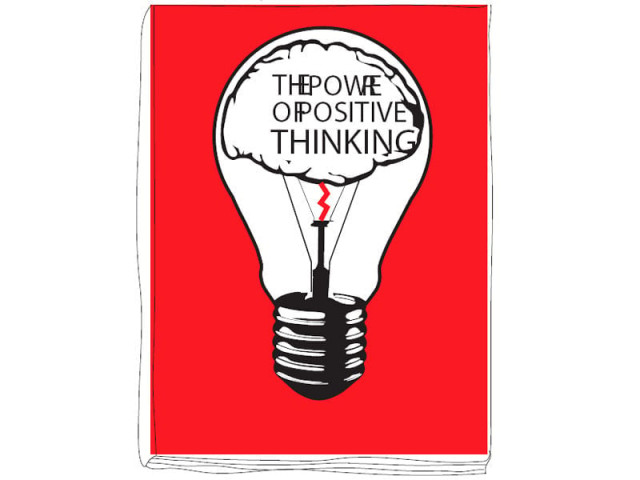I’m OK, you’re OK: Happy thoughts alone won’t get us out of this mess, says expert
Whether it’s road rage or a tough relationship with your father-in-law, he has solutions.

I’m OK, you’re OK: Happy thoughts alone won’t get us out of this mess, says expert
It seems a bit unfair to say positive thinking is a solution for people in a country infested with crime and corruption where more than half of the population is food insecure and violence seems to be spiralling out of control. How much of a difference can one make by just thinking and acting positively?
“The United States has more crime and rape than Pakistan does,” counters Dr Muhammad Imran, a motivational speaker, who held an interactive lecture on mind science at the DHA Central Library on Saturday. He has been living in Canada for the last 25 years. “In fact, Americans consume more antidepressants than us as well, while Japan has one of the world’s highest suicide rates. Still they are superpowers because there people are willing to change.”
Imran’s day job is as the managing director of multinational group of companies but he moonlights as a mind science specialist after securing a PhD in clinical therapy. Touching on controversial neuro-linguistic programming (NLP), Imran said, “It [NLP] is about personal development and a change in attitude, focusing on being happy.”
During Imran’s session people wrote anonymous short letters with their problems and he offered generic solutions and techniques people could apply in similar situations.
“Take the example of a car as a person’s unconscious mind and the driver being the conscious mind,” he said. “Both the car and the driver need to be aligned for a successful journey.”
As part of his teachings, Imran advocates a belief system which demands faith in a superior power, ie, creator of all across religions. “Prosperity is a journey in which simply thinking optimistically is not enough,” he says. “You have to act on and implement on this positive energy as well.”
In Imran’s opinion, the affluent in society and not the lower middle and middle class, need to exercise more positive thinking. “The privileged have some very... unique problems,” Imran said, adding that many among them never enjoy a happy personal or family life. In one of the anonymous letters, a woman in the audience said her life had been severely affected when her father did not buy her a bicycle when she was a child as he could not afford it. In her opinion this was the starting point of a lifetime of disappointment and insecurity. In response, Imran said people tend to focus on the negative aspects of the situation. thus setting themselves up for disappointment. Instead this woman could have chosen to understand her father’s limitations and work hard and earn it for herself in the hope to give herself and her children a better life. “It’s all about how you percieve a situation,” he said in a matter-of-fact tone.
While some members of the audience were sceptical about Imran’s motivational approach, others said adopting his teachings have changed their lives. Syed Salman Reza, for example, attended his first session on positive attitudes changing lifestyles a little over a year ago. “At first I didn’t take all of this seriously at all and thought it was all a gimmick,” he told The Express Tribune. Reza said he used to be incredibly short-tempered and bossy, didn’t have any patience and was filled with road rage. “When I started taking these techniques seriously and adopting them, I noticed a great change for the better in myself.” Reza says he began to stay a lot calmer, in fact his relationship with his wife and two sons along with that with his parents and siblings also improved. “Removing the negative energy from my thoughts helped clear my mind and prioritise what was important and what I should not take too seriously. It has just been a great tool to exercise my mind on seeing things and situations from other perspectives and not just what I may think is right.”
Another attendee Hina Jaffer said Imran’s teaching helped her forge better relationships with people around her as she brought about a change in her personal attitude.
Motivational speaking has mostly been used as a corporate tactic to inspire human resource to work better and harder by focusing on company goals and objectives while offering them a chance at self-development and therefore greater self satisfaction. Sessions inviting regular people to come discuss their issues and learn some key points seems to be a relatively new concept in Pakistan.
Published in The Express Tribune, January 29th, 2012.



















COMMENTS
Comments are moderated and generally will be posted if they are on-topic and not abusive.
For more information, please see our Comments FAQ